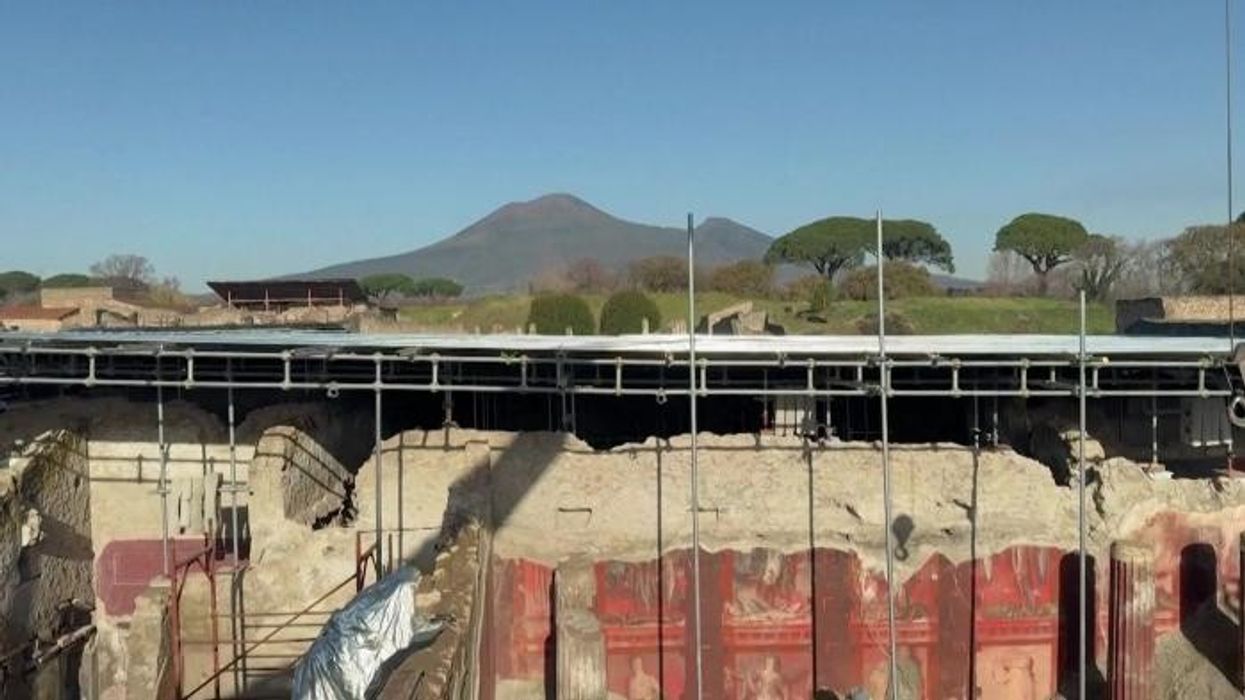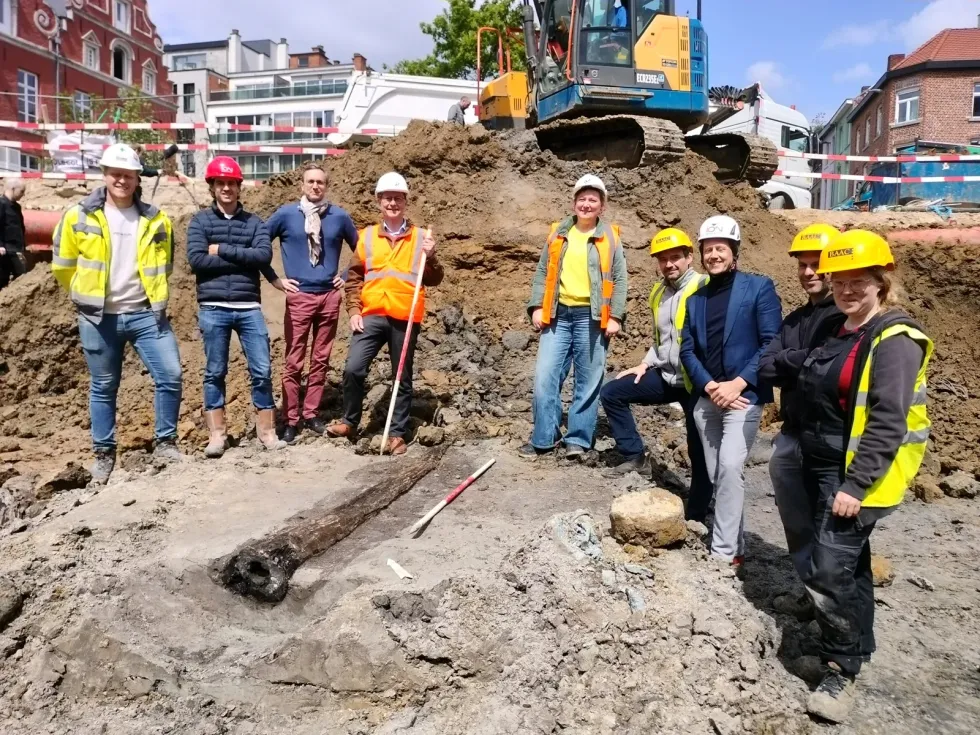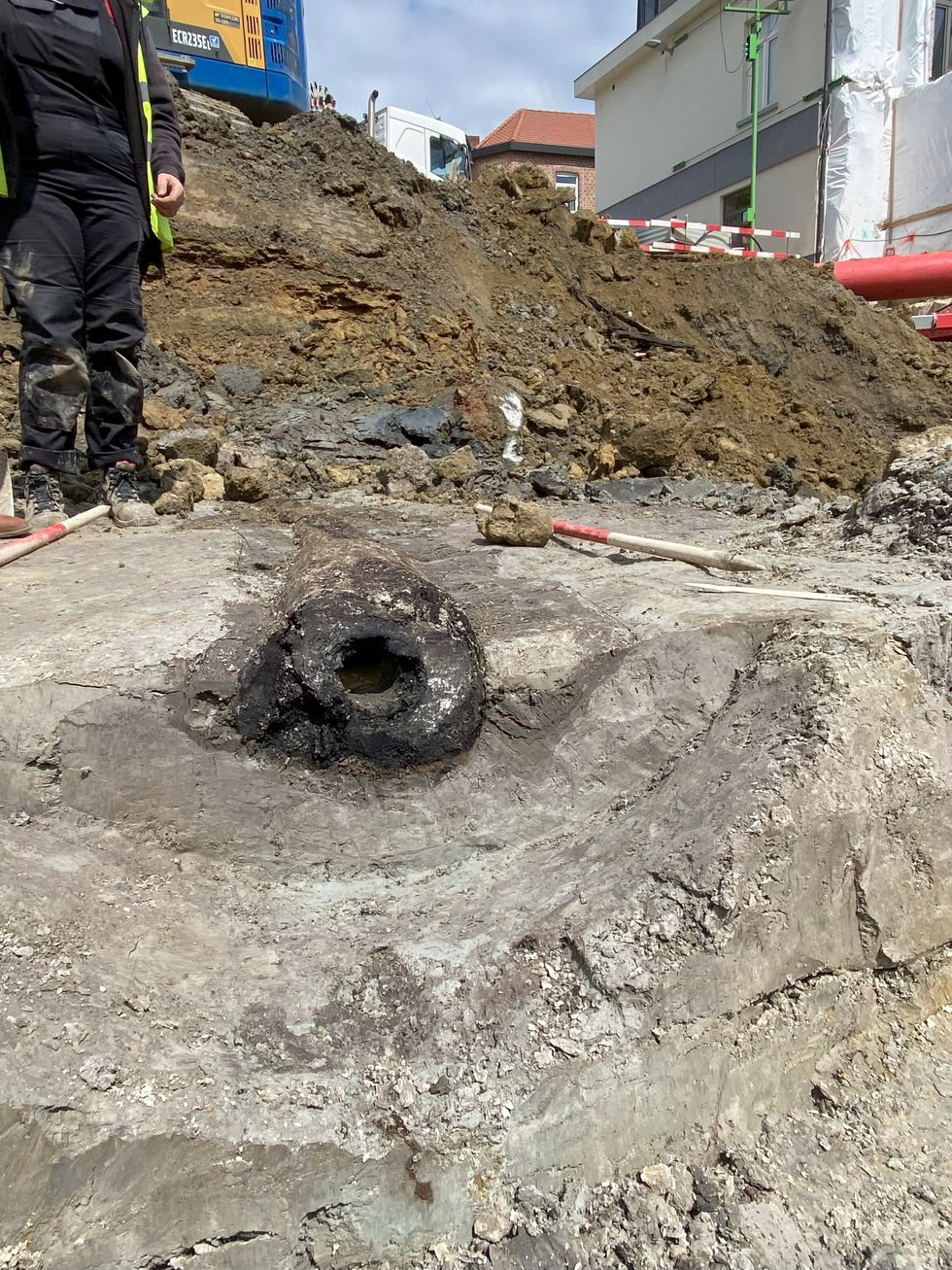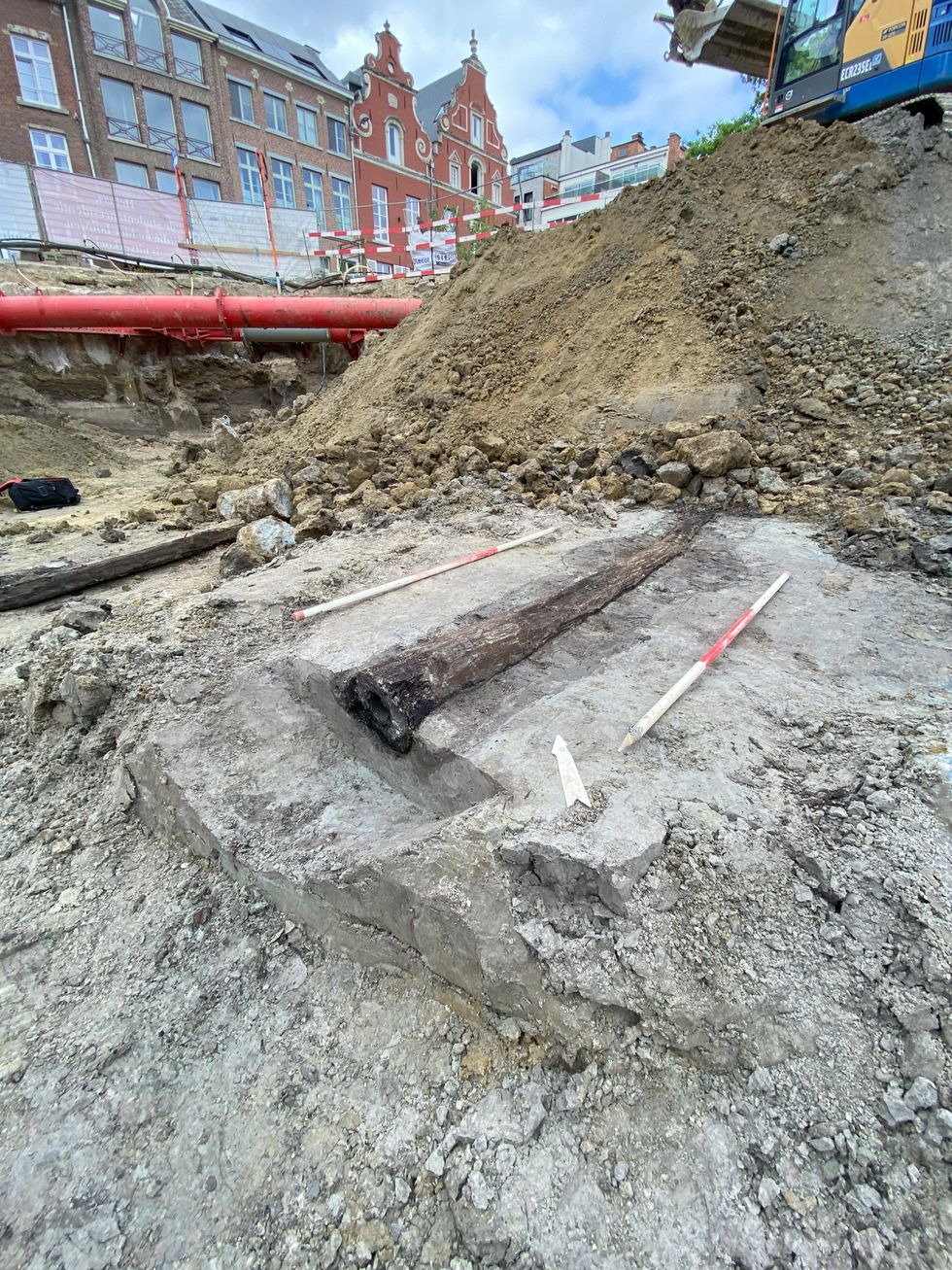Archaeologists discover miraculously well-preserved wooden artefact in ancient Roman town

Pompeii: 'Exceptional' Dionysus frescoes unearthed offering rare glimpse into Roman archaeology |
GB News

Researchers made the discovery when working on new student hosing in Leuven
Don't Miss
Most Read
Latest
Archaeologists have unearthed a remarkably well-preserved Ancient Roman wooden water pipe in the marshlands of Belgium. The significant discovery was announced by the city of Leuven, located east of Brussels in Flanders, on May 7.
The rare find was made during an excavation to clear space for student housing on Brusselsestraat, a street running through the central part of the city.
At first glance, the ancient pipe resembles a simple log. However, closer inspection reveals that ancient woodworkers carved a cylindrical hole through the wood to create a functioning pipe.
Photos show the archaeological team proudly posing next to their significant find, which offers a rare glimpse into Roman engineering techniques.

The team pose with the remnants of the pipe
|City of Leuven, Belgium
The pipe dates back to the second and third centuries AD, a time when Leuven "was a tiny spot in the vast Roman Empire, which stretched from Great Britain to Egypt and from Gibraltar to the Caspian Sea," according to city officials.
During this period, Leuven likely served as a "diverticulum," described as "a settlement of several houses and farms at a crossroads, near a Roman road connecting the major axis between Cologne and Boulogne".
Dirk Vansina, a city alderman for real estate heritage, emphasised the exceptional nature of the discovery in Flanders.
"At numerous locations, including in Tienen, indications of what was once a Roman wooden water pipe have been excavated before," he said.
"But never the water pipe itself, as the wooden logs used by the Romans had rotted away over time."
LATEST DEVELOPMENTS:

A close up of the pipe
|City of Leuven, Belgium
Vansina explained that wood rot typically occurs when groundwater levels fluctuate between wet and dry conditions. Fortunately for this ancient artefact, the local groundwater levels remained stable throughout the centuries.
"It is the Dijle [River] that ensured the wooden water pipe remained exceptionally well-preserved over the centuries," he noted. "Due to the proximity of the Dijle, the ground here was always marshy."
The wooden pipe will now be transferred to a conservation studio for further study. Experts will take a sample to determine its precise age before freeze-drying the artefact to preserve it for posterity.
Officials have indicated that the remarkable find may eventually be put on public display, allowing visitors to witness this rare glimpse into Roman engineering.

Thw wooden pipe was excavated by the team
|City of Leuven, Belgium
During the excavation, archaeologists also discovered other artefacts, including ancient pottery shards, though the city emphasised that the water pipe "is of a different calibre."
"The size of Leuven in Roman times was limited, but finds like this prove that the Roman presence was certainly not incidental and that it is worthwhile to continue digging and gradually uncover this past," Vansina said.







